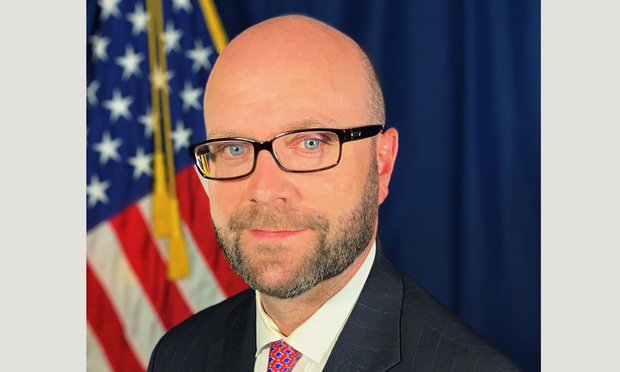 Stephen J. Cox, U.S. attorney for the Eastern District of Texas/courtesy photo
Stephen J. Cox, U.S. attorney for the Eastern District of Texas/courtesy photoMillions of Americans and small businesses are suffering the economic effects caused by the Covid-19 pandemic. In response, Congress passed the Coronavirus Aid, Relief, and Economic Security (CARES) Act. This historic legislation, which includes over $2 trillion in emergency financial assistance, was designed to provide immediate help for small businesses, healthcare providers, and individuals.
The CARES Act includes the Paycheck Protection Program (PPP), which provides nearly $650 billion in loans to businesses, as well as Economic Impact Payments (EIPs) to provide relief to individual taxpayers and families. The CARES Act also includes other programs to help small- and medium-sized businesses, and assistance to hospitals and other healthcare providers on the front lines of the coronavirus response.
This federal response to the current crisis is vital to the economy, but like many good federal programs, there is risk of fraud. For example, the PPP requires borrowers to make certain certifications regarding their eligibility and the use of the funds, but some borrowers make misrepresentations in bad faith. When fraudsters unlawfully take money to which they are not entitled, they deplete the program and divert funds from those who need it most. The Department of Justice (DOJ) is committed to pursuing wrongdoing related to Covid-19, including these fraudulent schemes. The U.S. Attorney's Office for the Eastern District of Texas (EDTX) shares this priority and will deploy all criminal and civil enforcement tools available to combat such misconduct.
In the few short months since passage of the CARES Act, we have initiated multiple criminal actions and investigations. We are pursuing individuals who used stolen identities to obtain EIPs. We also have partnered with the DOJ's Criminal Division to charge several individuals who, as alleged, knowingly provided false information to obtain millions of dollars in PPP loans. In one case, rather than using PPP funds for purposes authorized by the CARES Act, the funds were allegedly used to purchase luxury vehicles and to fund personal investment accounts. In addition to criminal efforts, we are looking to the False Claims Act (FCA), a powerful civil statute that allows the United States to recoup money that has been lost due to fraud. The FCA allows the government to obtain treble damages and civil penalties from those who defraud federal programs, such as the CARES Act.
We will be vigorous in our enforcement efforts. Even so, we recognize that some businesses have voiced concerns about increasingly complicated program rules and regulations creating traps not only for the unwary, but for the many companies that sought assistance in good faith. For example, some have predicted FCA litigation based on inadvertent foot faults or regulatory defects, a risk that could increase with additional disclosures of funding recipients, investigative reporting, and public criticism. Rest assured that we will be careful not to discourage legitimate businesses from accessing the important financial resources that Congress made available through the CARES Act. We will not punish companies that accessed stimulus funds in good-faith compliance with the rules. Nor will we seek out applicants who made technical mistakes in processing paperwork or honestly misunderstood regulatory or certification requirements. Our focus is on fraud.
So what can the public do? Simply put: If you see something, say something. Report borrowers who knowingly provided false information in loan applications, individuals who unlawfully obtained EIPs, and those who knowingly misused CARES Act funds. We are working with banks and other financial institutions to help identify potential fraudsters. But we also need the public's assistance. If you know of, or suspect, fraud related to the CARES Act, please contact the National Disaster Fraud Hotline at 866-720-5721.
The EDTX and our law enforcement partners are ready to take on those who attempt to illegally profit from the coronavirus pandemic. And we need your help to wage this fight.
Stephen J. Cox is the 39th U.S. attorney for the Eastern District of Texas (EDTX). As the chief federal law enforcement officer in EDTX, Cox supervises the prosecution of all federal crimes and the litigation of all civil matters in which the United States has an interest. As U.S. attorney, Cox leads a staff of over 120 prosecutors, civil litigators, and support personnel located in Beaumont, Plano, Tyler, Sherman, Lufkin, and Texarkana.
From: Texas Lawyer
© Touchpoint Markets, All Rights Reserved. Request academic re-use from www.copyright.com. All other uses, submit a request to [email protected]. For more inforrmation visit Asset & Logo Licensing.



